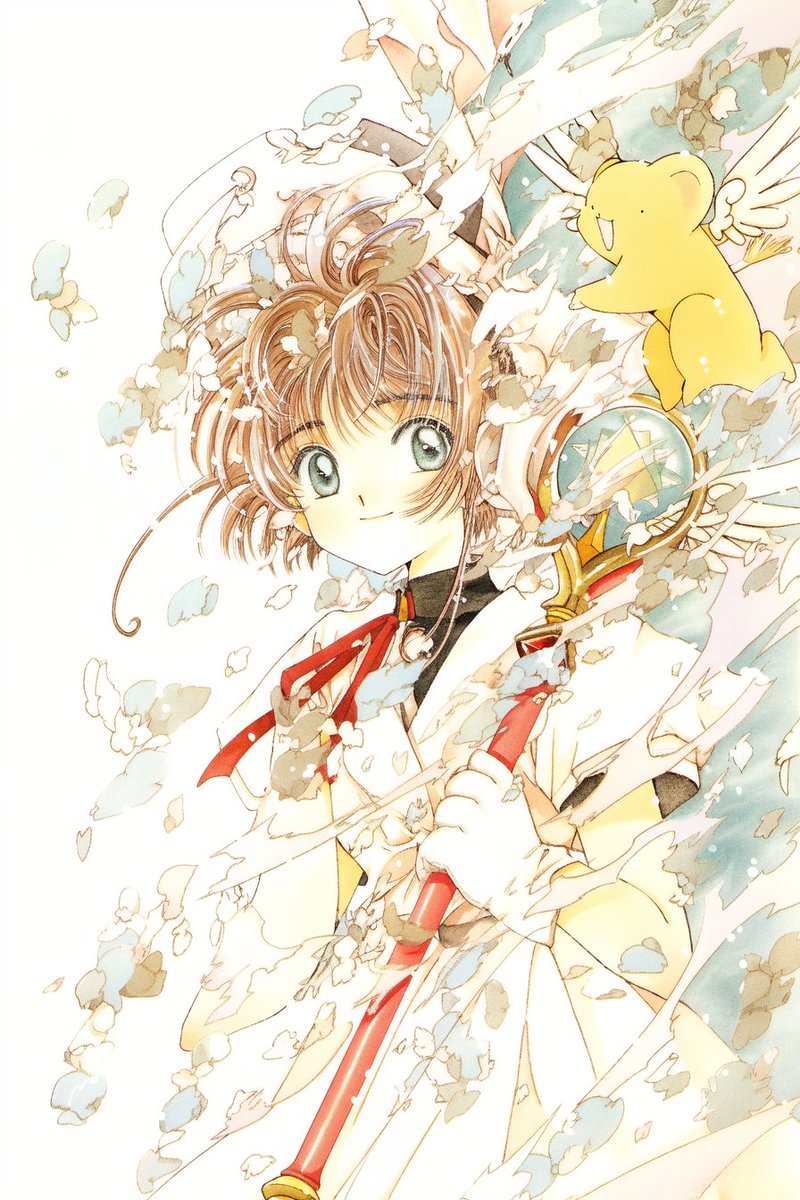“Rules are a product of past negotiations.” combined with “copyright is a concept created by the invention of Gutenberg letterpress printing.”
- I haven’t backed up whether the latter is the correct claim. - Early history of copyright
--- log
mishiki It is once again clearly confirmed that, as a result of collective intelligence, an image-generating AI can acquire a style that humans perceive as a “pattern” or “style”. And, as a result of the collective intelligence, it has been confirmed once again that an image-generating AI can acquire the style that humans perceive as a “pattern” or “style. And again, it is important to confirm that Sakura’s image is not a creative expression of thought or emotion, and therefore, “copyrightability is not recognized”. This is what is bugging many people’s brains right now.
-
@8co28:nijijourney I’ve been thinking about the output, but I’m afraid that I’ve already seen this image, so I’m wondering if there are any CC Sakura experts out there who can tell me if there are any images of the original. I’m not sure if this is the original image or not, so I was wondering if there are any CC Sakura experts out there who can tell me if there is an original image of this image.
-

mishiki Copyrighted material is a rather cumbersome concept to begin with, but the hurdle to understanding the concept of copyrighted material has definitely been raised a notch in difficulty since the image generation AI The concept of copyrighted materiality is a very complicated concept to begin with. This is because it is significantly different from intuition. At least, if this picture of Sakura was drawn by a human, it was unthinkable that it would be denied from the point of copyrightability.
mishiki that if a human draws an image, it is recognized as a creative expression of thought and emotion, but if an image of the same level of complexity is generated by an image-generating AI, it is not recognized as copyrightable. This is a definite conclusion. If this is the case, the importance of how much “thought and emotion” can be expressed, i.e., abstract rather than concrete expression of emotion, will increase for those who want to draw pictures in the future.
mishiki Abstract expression of emotion can be expressed in terms of “narrative,” “worldview,” and “depth. In addition to “beautiful,” “cool,” and “cute,” it is required to have a quirk or two that appeals to the emotions.
The writer I think is very good from that perspective is, for example, 526.
mishiki It seems that even in the age of image-generating AI assumptions, the steps that can be taken by artists who want to paint will be “to be aware of the abstract nature of expression and to be more emotionally charged”. But is that effort any different from what has been explored for hundreds of years in conventional pictorial expression? I mean,
Nothing has changed.
I also notice that the
mishiki So as I personally have been saying all along, even after the image generation AI, there is no particular change in the issues that the artist thinks about. The workflow may change.
On the other hand, the viewers of the paintings will be more concerned than ever about who the artist is and what he or she is thinking.
tanji_y The concept of copyright itself is extremely artificial, born from the invention of printing technology, and any comparable innovation would shake the very foundation of the concept. It has a destiny, doesn’t it? Generative AI is a frighteningly clear demonstration of such a structure > RT
tanji_y With Gutenberg’s invention of letterpress technology and the development of the publishing industry derived from it, an industry to “make money by mass distribution of books reproduced on a large scale” was was born.
At the same time, pirates appeared in large numbers, and it became necessary to “invent” a new concept of copyright in order to crack down on them.
tanji_y Such “consumers who buy mass-produced books” also arose from the industrial revolution derived from printing technology (the so-called middle class).
In addition, I understand that the Industrial Revolution’s multiple layers of innovations since Gutenberg, such as the powering of printing presses and the development of high-speed transportation networks, have transformed the world of creation.
tanji_y “Before the invention of copyright”, creators were mainly nourished by the royal nobility and religious communities, right? Or some kind of hobby for unknown people.
The middle class (masses) that supported “mass production and mass consumption” itself originated from the industrial revolution (printing technology). It is very multilayered.
In addition, a major historical event, the Reformation, also originated in print.
tanji_y If generative AI is a Gutenberg-level innovation, then the Reformation, the Industrial Revolution, the rise of the middle class (and fall of the aristocracy), the advent of intellectual property rights, etc, I feel that it would cause a long-lasting change in the social structure across a vast range of fields.
If it was more than Gutenberg: …
I can’t even imagine…
This page is auto-translated from /nishio/著作権は過去の交渉の産物 using DeepL. If you looks something interesting but the auto-translated English is not good enough to understand it, feel free to let me know at @nishio_en. I’m very happy to spread my thought to non-Japanese readers.